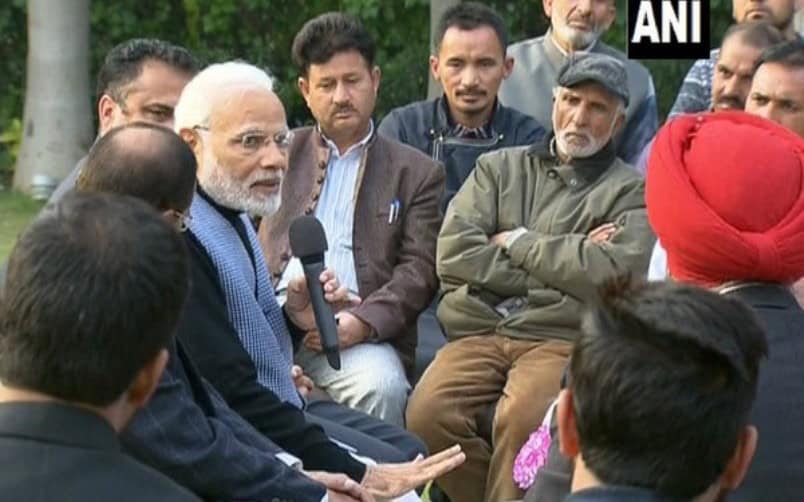New Delhi: Prime Minister Narendra Modi on Wednesday met a delegation of newly-elected Sarpanches from Jammu and Kashmir here and conveyed his personal and his government’s commitment towards empowering the people of the state to fulfil their aspirations.
He assured them of the Government of India’s full support for making the Panchayati Raj model a success and responsive to the people’s basic necessities and grievances, according to a statement issued by the PMO.
The Prime Minister congratulated the local representatives for the courage displayed by them in the face of heavy odds; and for successfully participating in the democratic process, despite threats and intimidation, the statement said.
Elections to 1,100 Urban Local Body wards in Jammu and Kashmir were held after a gap of 13 years and to 35,000 Panchayats after seven years in Nov-Dec 2018.
The Panchayat elections saw a voter turnout of 74 percent despite the terrorists warning against the conduct of the polls.
To take the process forward, a training programme for 40,000 grass-roots representatives will be undertaken soon.
The Sarpanches will be provided a monthly honorarium of Rs 2,500 and Rs 1,000 per month will be disbursed to each Panch.
The Prime Minister told the 48 Sarpanches of Panchayats that his government will stand shoulder to shoulder with the local government representatives for the welfare of the state, to fulfil the aspirations of the masses, it added.
The delegation, led by President of the All Jammu & Kashmir Panchayat Conference Shafiq Mir, conveyed its appreciation to the Prime Minister for empowering the institutions of local self-governance through the successful and peaceful conduct of Panchayat elections in Jammu and Kashmir.
Modi urged the members of the delegation to prioritize people’s interests, as the people have reposed enormous faith and hope on them.
Empowerment of grassroots institutions is a significant step in taking Jammu and Kashmir away from the path of violence and secure the rights and development of the local populace.
He also appreciated the participation of women in the recent Panchayat elections.
Devolution of powers at the grassroots level is a unique opportunity for people to become stakeholders in their own developmental process.
The J&K Panchayat Act was passed in 1989, but only three of the allotted 25 functions under the Act were actually provided budgetary support.
The Government has now amended the J&K Panchayati Raj Act of 1989 and transferred Rs 2,000 Crore per annum to the Panchayats.
Another Rs 1,200 Crore has been made available to the Urban Local Bodies. The Panchayats will directly monitor activities pertaining to 19 departments/subjects and carry out audits of government schemes and projects.
[source_without_link]ANI[/source_without_link]

